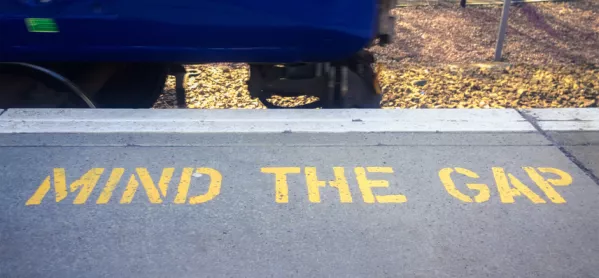So, now we know. Anne Milton’s letter to Association of Colleges (AoC) chief executive David Hughes today confirmed what many in the sector had already feared: that the government will not make available any extra funding to help colleges fund a pay increase for their teaching staff.
There had been hope. Only last month, the government announced school teachers would get a pay rise of between 1.5 per cent and 3.5 per cent, and although this would not be funded from new money from the Treasury, schools will also not be expected to pay for those increases from their existing budgets. Instead, the DfE said it was assuming schools had budgeted for a 1 per cent rise, and the government would pay for the difference from savings elsewhere in its budget.
So one could be excused for thinking that there might be a similar deal in the offing for FE. But it was not to be. “Schools and colleges have different workforce requirements, and the way pay is determined in those sectors is quite separate,” Anne Milton points out in her letter to David Hughes. “We want to make sure that there is an effective funding system for FE which can support sustainable, high-quality education”. Fair enough. I am sure most in the sector want the same thing. But it misses the point.
Opportunity missed
For one, this would have been a great opportunity for the government to put its money where its mouth is. I hate the phrase “parity of esteem”, but if we are to believe that vocational and technical routes are to be as highly valued as academic ones, how can that not translate into real, hard cash? How can you claim FE matters when you are then not willing to support colleges to offer that high-quality skills training we constantly claim is so important to a country fast heading towards Brexit?
This also throws up another question, however. Where does this leave the sector? Colleges are saying their budgets do not allow for a significant pay increase, and indeed, we have previously reported on the significant number of institutions whose finances are unstable. But for obvious reasons, staff will not simply accept there is no money. Indeed, UCU has strike ballot notices to colleges that have not yet confirmed they will accept the 2018-19 pay claim, and the union said today Anne Milton’s letter did not let colleges “off the hook”.
And why would they - after all, everyone agrees that FE teachers deserve a pay rise. Median teacher pay in FE, according to the AoC, is £30,000, compared to £37,000 in schools. And even within FE, lecturers in England get paid significantly less than their colleagues, for example, in Scotland. Strike action seems almost inevitable. Again. With all the disruption to staff and students that comes with that. And how the deadlock will be broken is not at all clear to me.
Ministers have missed an opportunity, in my book, to really meaningfully support FE, and I am not at all surprised to hear words like “disappointment” and “anger” from the sector today. Only days ago, I wrote that I believe it is time for the sector to stand up proud and shout about its importance and its achievement. In the run-up to next year’s spending review, it seems that will now be more important than ever if the sector is to be in with any chance of extra funding from the Treasury.




